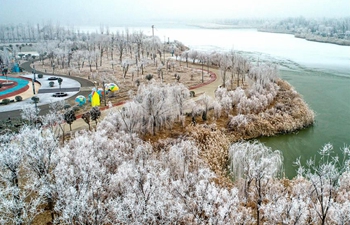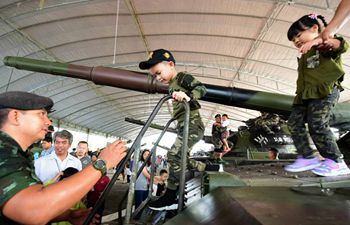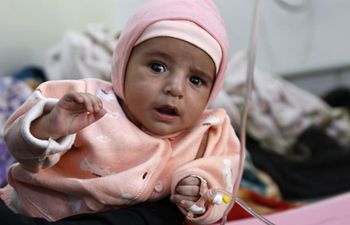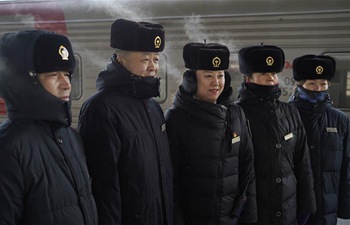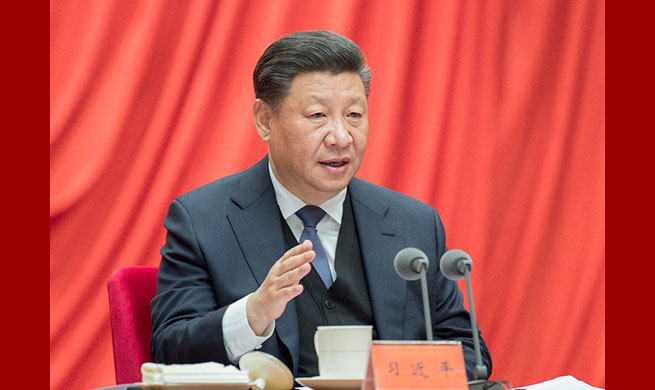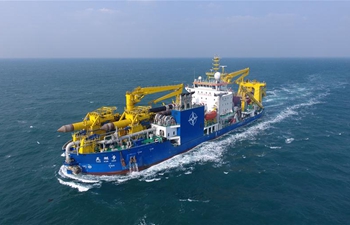by Zeynep Cermen
ISTANBUL, Jan. 12 (Xinhua) -- Worsening economic conditions have replaced terrorism as the top concern of Turks, with 2019 seen as a year of struggle not for a few.
Since the spring of 2018, the ailing state of the economy has been seen as the biggest problem for most of the households in Turkey, according to a latest survey.
The poll conducted by Ipsos, a global market and opinion research firm, shows that 59 percent of Turks had a negative perception of the economy months back, and their expectations for the future have become bleaker after 2019 set in.
One third of those joining the survey said their purchasing power has declined "noticeably," while 20 percent stated that they were considering finding an additional job so as to be able to sustain their living standards.
Contributing to the concerns are an array of problems, including the sharp depreciation of the Turkish lira, a higher cost of living and a growing inflation, according to analysts.
The inflation rate surged to 25.2 percent in October before easing to 20.3 percent in December.
Some 37 percent of the respondents said they had been trying to control their expenditure more tightly, according to the survey.
However, 43.7 percent of the Turks' total expenditure covers compulsory items like food and drinks, making a meaningful cut in costs impossible.
Yalcin Karatepe, an economist, said the fact that the concerns have reached a point of anxiety indicates a deteriorating economy.
"The picture became apparent during the second half of the last year, and we entered a severe economic crisis," he told Xinhua.
A currency crisis hit Turkey hard in August, driving the Turkish currency to lose around 30 percent of its value against the U.S. dollar last year.
Moreover, Turkey's economic growth during the third quarter of last year slowed down to 1.6 percent, and Karatepe expects an even lower rate for the fourth.
"I think the country's economy will shrink throughout 2019," he said. "So under these conditions, it is very understandable why most of the people who joined the survey painted a dark future."
In the view of Ersin Eren, who is working at a hairdresser salon in Istanbul's upscale neighborhood of Cihangir, the current economic conditions of the country are "very iffy."
"The high cost of living makes us all too nervous," Eren said, adding that he cannot take any firm decision about his future now.
For Sidar Gedik, chairman of Ipsos Turkey, "it is scientifically clear that 2019 will be a year of struggle for all segments of society."
The Turkish government has taken some measures to ease the burden of the people, including incentives to small- and medium-sized enterprises, restructuring of credit card debts, and state payment for some electricity bills.
But for Abdullah Agar, a security analyst, the results of the survey revealed a change of priorities for the Turkish people.
At the beginning of 2018, the top concern for 51 percent of Turks remained terrorism, but the rate fell to 13 percent in December, according to the Ipsos survey.
"Until 2018, there was a significant threat to Turkey posed by the PKK (the Kurdistan Workers' Party) and also radical terror groups led by the Islamic State," he told Xinhua.
In his view, Ankara's continued fight against terrorism has reduced the threat, "lessening people's state of panic."




